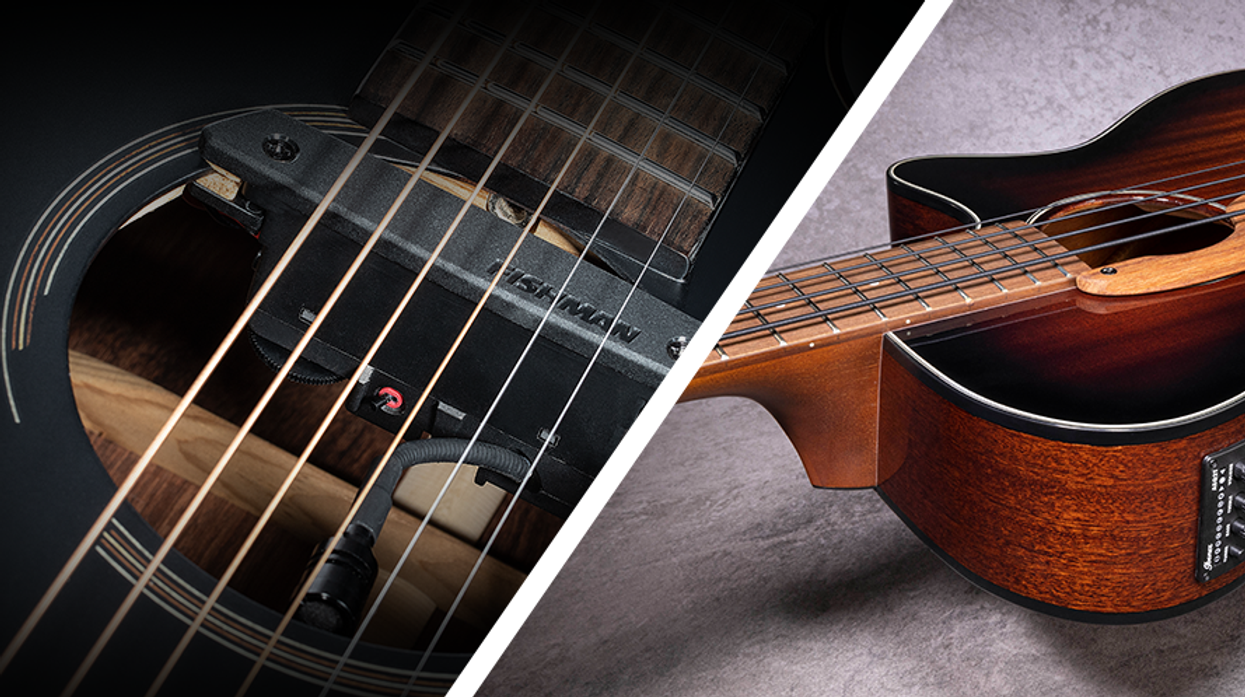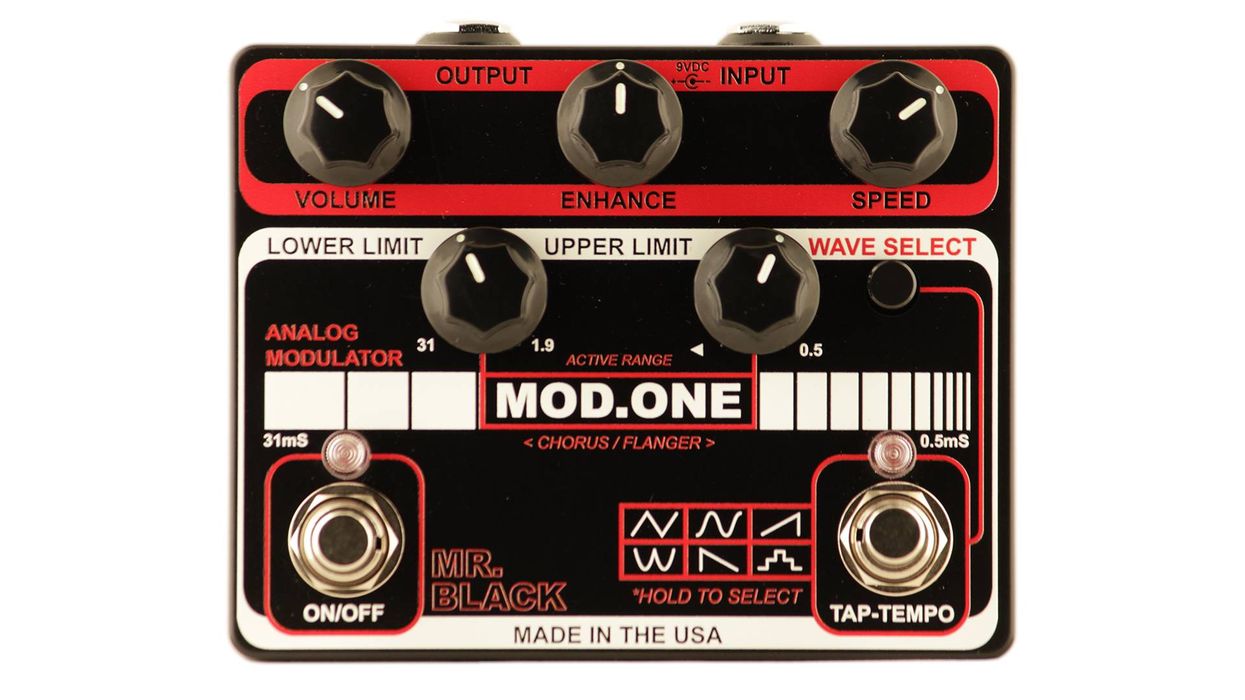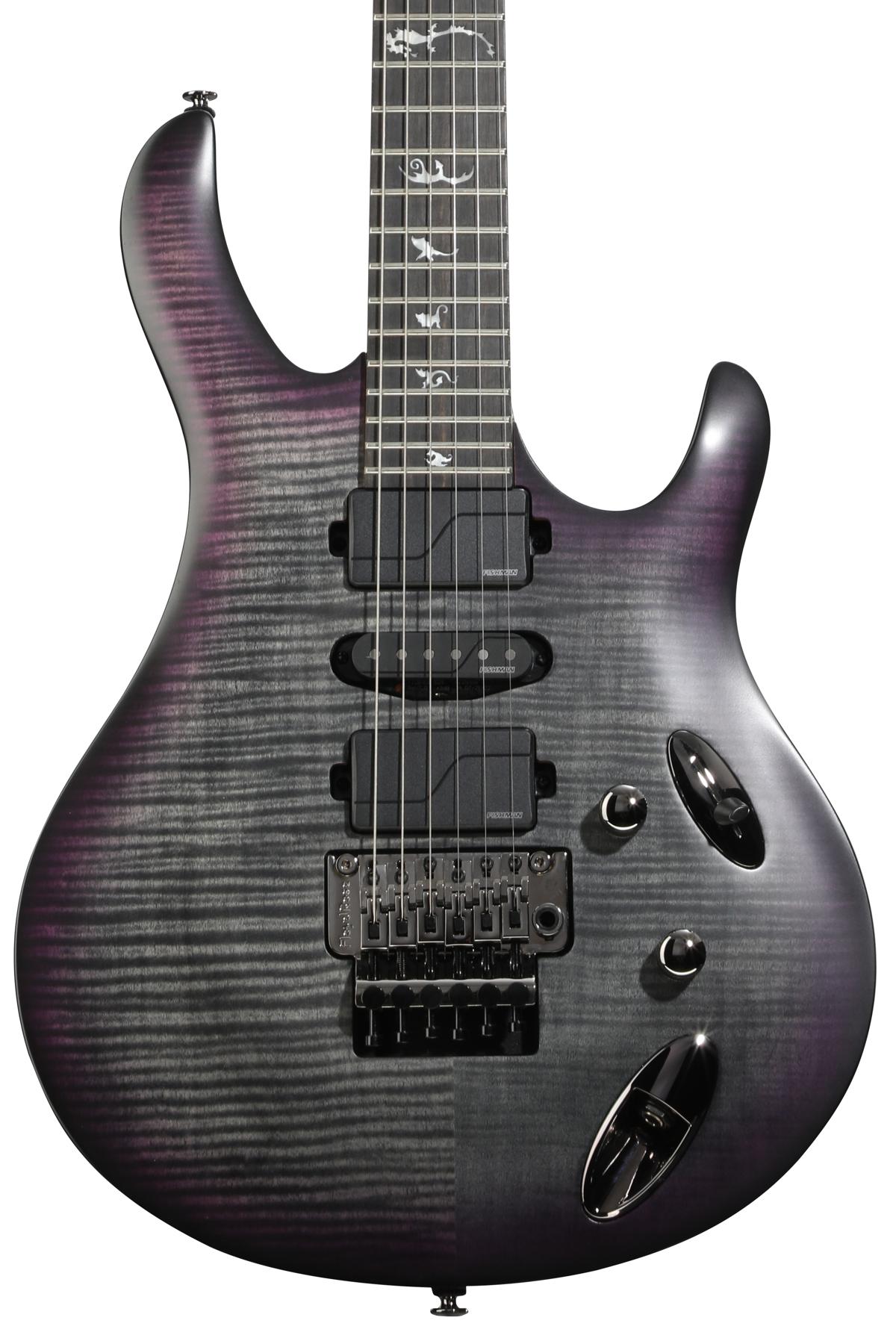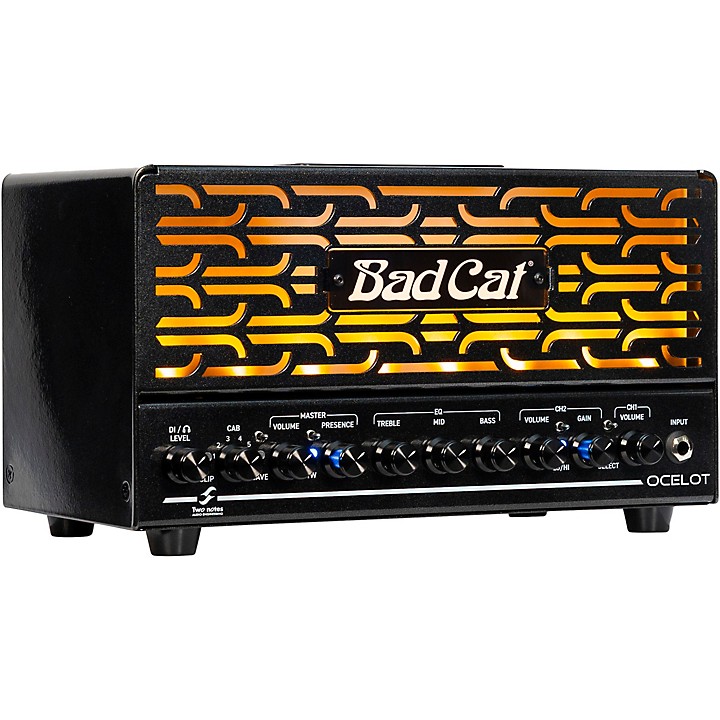Efficient Layout
The box doesn’t exactly scream economy or simplicity at first. It’s about the size of three MXR pedals put together, and the switches and knobs are numerous. But they’re tidily laid out and easy to understand, which adds up to a shallower-than-expected learning curve. It’s actually easy to find good settings quickly.
Keeley included drive and boost sections. The drive is based on his Oxblood OD and the boost can be switched between his 1962 and Katana circuits. The extra gain is a fix for perceived volume drop, but it alters the EQ characteristics of the modulated tones. Each drive has a unique personality. The Oxblood circuit is a little scooped in the low mids and bass. The 1962 boost/drive is fuller sounding in the lower mids and bass frequencies. It’s important to keep the tone settings up pretty high when using either drive or you’ll risk losing a little air and dynamics. The Katana boost is very clean and even stacks nicely with the Oxblood.
Ratings
Pros:
Versatile. Lots of cool modulation options with some truly inventive sounds. Tons of tones on tap with the boost and drive functions. Very handily laid out, with little to no learning curve.
Cons:
Lack of stereo outputs on a modulation pedal of this scope is a bummer. Superfluous drive effects.
Tones:
Ease of Use:
Build/Design:
Value:
Street:
$299
Keeley Mod Workstation
robertkeeley.com
Waves Upon Waves
The Mod Workstation’s tremolo is exceptionally warm. The volume swells sound almost optically generated—as if Teletronix (of LA-2A compressor fame) had created a tube-based tremolo unit. It doesn’t have the upper-harmonic grit associated with amp tremolos, but it does have that soft and pillowy tube-like response and decay. The harmonic tremolo sounds a bit like a cross between a phaser and a vibrato. It also has a resonance that can sometimes sound like an auto-wah. It’s somewhere between gurgling and bubbly, with lots of low-mid content to create depth.
The random automatic filter is my favorite sound on this pedal. It generates futuristic electronica-tinged guitar sounds and is awesome for adding rhythmic texture. The phaser is deep and tastefully resonant. Like the harmonic tremolo, it’s got a healthy low-mid heft that can make both overdriven and clean tones swirl without sounding overly bright or muddy. ADT (automatic double tracker) mode sounds awesome paired with the drive tones. It occupies a space somewhere between subtle chorusing and slapback delay, and is great for adding ambience. The shortest slapbacks on the ADT, however, can sound a little metallic.
The only real letdowns are the flanger and rotary simulation. The flanger sounds a little harsh and digital. The attack and response feel stiff, and the sweeps feel narrow—even at the deepest, slowest settings. Similarly, the rotary simulation feels artificially bright and rigid, and the hollowed-out mids remove some of the vital sense of motion. (Keeley says detailed steps have been taken to improve these functions on newer versions of the pedal.)
Stereo outputs are a useful tool for adding motion to modulation effects. Unfortunately, the Mod Workstation doesn’t have them. Many of the lushest effects left me longing to hear them in stereo. Given how common this feature has become—especially on multifunction pedals of this size—it’s a notable design omission.
The Verdict
The Mod Workstation is a solid modulation pedal if you’re looking for an all-in-one solution. That said, it often feels like it would benefit from focusing on a few of the strongest effects. The drives, for instance, feel superfluous where a nice clean boost would have sufficed. Still, Keeley deserves praise for making this very capable unit easy to use.
Watch the Review Demo:







![Rig Rundown: Russian Circles’ Mike Sullivan [2025]](https://www.premierguitar.com/media-library/youtube.jpg?id=62303631&width=1245&height=700&quality=70&coordinates=0%2C0%2C0%2C0)


























